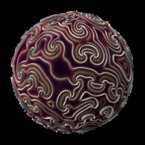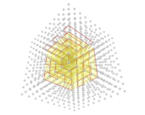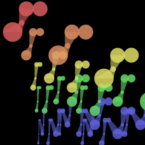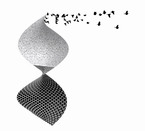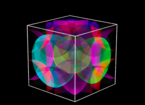MathLapse - Abyss of Infinity
영상
저작권
크레딧
- Video and animation
- Music
- Sound effects
Are the sum of odd numbers greater than the sum of even numbers?
If we have a stick and a hole we can compare their lengths by putting the stick in the hole. If it sticks up, it is longer than the hole. If it sinks in, the hole is deeper.
Could we use the same approach to find whether the odd or the even numbers have greater sum? Well, let’s try.
Imagine all odd numbers are sticks with lengths 1, 3, 5, … and all even numbers are holes with depths 2, 4, 6, … and they are placed in their natural order - stick, hole, stick, whole… It is time to put all sticks into the holes. If we push each stick to the hole to the right, we will find that all sticks are shorter. However, if we push them to the left, we will find that all sticks are longer.
What is going on?
There are no true infinities in Nature. That is why human intuition cannot efficiently handle mathematical infinities. Even the most fundamental properties, that we have studied in school, break down fabulously when faced against infinity. In this example, we are effectively calculating 1-2+3-4+5-6+…. and we are trying to find whether the answer is greater, equal or less than zero.
Because of the infinity, the answer depends on how we perform the calculation. If we calculate (1-2)+(3-4)+(5-6)+ …, then we will get -1-1-1… which is negative infinity. If we group the operations in another way, like 1+(-2+3)+(-4+5)+…, then we will get 1+1+1+… which is positive infinity. In both cases we use all numbers.
To get you even more confused, Euler says the result of 1-2+3-4+… is neither positive infinity, nor negative infinity, but exactly … 1/4.



